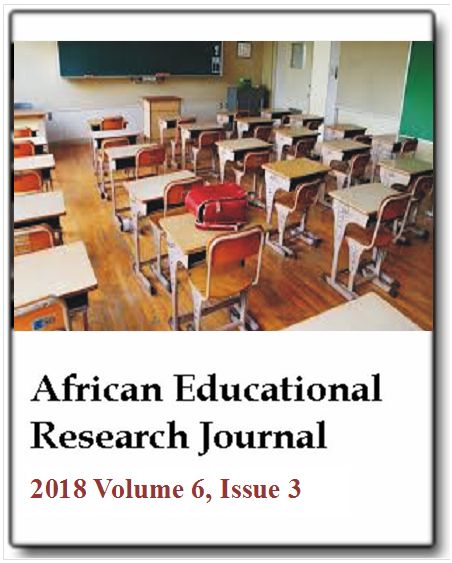Relationship between career aspirations and study behaviours among second year distance learners of the University of Cape Coast, Ghana
Vera ArhinAfrican Educational Research Journal
Published: August 9 2018
Volume 6, Issue 3
Pages 173-180
DOI: https://doi.org/10.30918/AERJ.63.18.043
Abstract
The purpose of the study was to examine the relationship between career aspirations and study behaviours among distance learners of the University of Cape Coast (Ghana) who performed poorly during their first year of study. The correlation research design that employed the explanatory sequential mixed methods approach was adopted for the study. Specifically, three hundred and sixty eight (368) participants were purposively selected, out of which 357 were used for analysis. Social Cognitive Career Theory as postulated by Lent et al. (1994) formed the study’s theoretical framework. Data analysis was done using the descriptive statistics and tetrachoric correlation coefficient as well as the Merriam process of analytical coding. The results of the quantitative analysis revealed that the majority of participants had positive career aspirations as well as good study behaviours. However, the correlation coefficient was r(355) = .273, p = .01, meaning the correlation between the two variables was statistically significant but weak. The study recommends that, in order to help boost students’ academic performance, management of the College of Distance Education of the University of Cape Coast should organise periodic career guidance seminars for students, to stimulate their career awareness and nurture their enthusiasm.
Keywords: Aspirations, career, distance learners, relationship, study behaviour.
Full Text PDFThis article is published under the terms of the Creative Commons Attribution License 4.0

